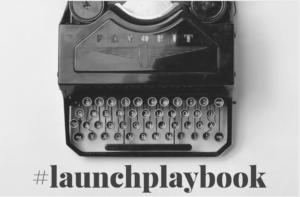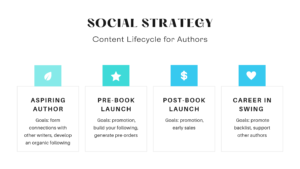Marketing
In an earlier post for WU, I wrote about the process of writing my audio-first novel for adults, A Hundred Words for Butterfly, and how it had differed from other novels I’ve written, because of the fact I specifically created it for the audio format. Well, this week the novel has been officially released by its publisher, Spineless Wonders Audio, and is available now for purchase on lots of different platforms, including Google Audio, Kobo, Nook, Libro, Authors Direct, and others. Audible will also follow shortly. It’s been an amazing and exciting process, seeing and hearing the audiobook take shape as narrator (Sarah Kennedy) sound engineer (Echidna Audio) cover designer (Bettina Kaiser) and producer (Spineless Wonders) worked on different aspects of the book. It’s an absolutely wonderful production, making my story, characters and setting come to warm and evocative life, and I hope listeners will enjoy it and take it to their hearts. (You can watch a lovely trailer for it, which features extracts from the narration, here). But today what I want to write about for this post is highlighting the absolutely brilliant marketing strategy that was devised by the Spineless Wonders team, in consultation with me, to create as much buzz as possible around the book in the lead up to its release. And I thought my observations might be of interest and inspiration to other authors, and not necessarily just in relation to audio novels.
In Australia, Spineless Wonders are known and highly respected for their innovative and dynamic approach to publishing, and their marketing strategy for all their books and events has always been focused on imaginative community engagement. And as we worked on our plan for the marketing of A Hundred Words for Butterfly, that engagement became more important than ever, because a large number of Australians, including but not only in our two biggest cities, Sydney and Melbourne, were (and still are) in lockdown due to an outbreak of the Delta strain of Covid19. (All of us working on it were in that boat). So it was even more crucial to come up with great ideas for activities that would offer people something fun, exciting and creative to do even when they were stuck in lockdown. After much discussion, we decided on three main themes/prongs for these.
First was writing, as represented by the #100words4butterfly writing competition, asking people to submit 100-word stories, poems, etc, inspired by four clever prompts linked to motifs in the book. (Prizes included a copy of the audiobook, plus entries published in a special digital magazine.) This comp was framed and run directly by the Spineless Wonders team and attracted lots of entries and great social media engagement, encouraged by striking marketing assets.
Second was a focus on the beautiful and fascinating Northern (or French) Basque country, which is the setting for most of the book. For this, I created intriguing blog posts and videos around what the Basque country, which is where my mother’s family comes from, means to me and my family. These were then shared on […]
Read More
The forthcoming launch of any book is a heavy lift, rife with news to announce, people to call, and updates to publicize.
But if you’re launching a debut? It’s an especially daunting endeavor because, well, you’ve never done this before! And the pressure is high: a splashy, big hit debut can make an author’s career. But conversely, a debut launch that doesn’t meet author or publisher expectations can be difficult to stomach, and this puts additional weight on second or third titles.
How is a debut author to know what, exactly, should be on his or her “task list” in the months approaching their big book launch? No doubt, authors publishing via the indie route will have more on their plate, but even traditionally-published authors are expected to take on much of the heavy lifting these days.
Below, I’ve pulled together a “playbook” for debut authors. Consider it a list of ideas for debut authors in the year leading up to their launch.
By all means, take this list with a grain of salt: there may be items on here that don’t apply to your specific circumstances or a suggested timeframe that needs to be reworked.
9-12 months until launch
6-9 months until launch
Read More
One of my favorite vintage bookstore finds is two volumes (out of three) of a 1742 translation by Rev. Philip Francis of the complete works of Horace. It’s interesting not so much for the translations (Francis turns Horace’s simplicity into contrived eighteenth-century rhyming heroic couplets) but for the technique Francis used to get it published. At the beginning is a list of subscribers – famous and/or rich people who paid a fee to be publicly seen as supporting the author. Among the viscounts and bishops is one “Deane Swift, Esq.” That would be Jonathan Swift, of Gulliver’s Travels.
Of course, writers today don’t have to persuade subscribers to pay for publication, selling their work on the same model that PBS uses to fund Masterpiece Theater. But from what I’ve seen of my clients’ experiences, being a successful writer nowadays involves a lot of skills that have nothing to do with actual writing.
Editing, for instance. This comes in roughly two different flavors – conceptual editing, which critiques how well your plot and characters work, and copy editing, which deals more with correct spelling and usage. (Full disclosure, conceptual editing is what I do for a living.) A lot of writers hire this out, especially the conceptual part, since it’s all but impossible to fairly critique your own work.
But good editing can be pricy, and many beginning writers on limited budgets have to learn to do it for themselves. There are <ahem> a lot of good books on what to watch for as you rewrite. Critique groups, where writers trade critiques on one another’s manuscripts, can be a help. But editing, especially copy editing, is a very different skill from writing, and it’s one you may have to teach yourself.
Read More




















